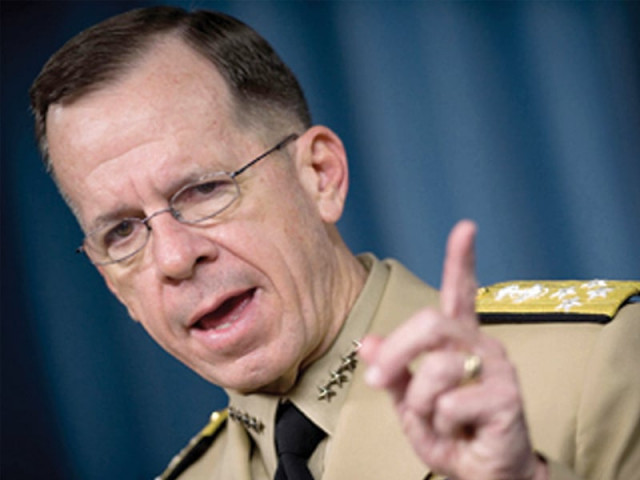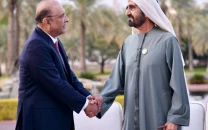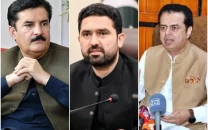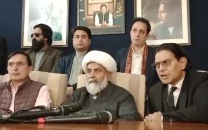From chorus to crescendo: ‘Ties with Haqqanis’ threaten civilian aid
US-Pak intelligence chiefs meet; Malik denies group’s presence on Pakistani soil.

The chirrup has grown to a clamour, now threatening the most civil aspects of an otherwise rocky relationship.
A warning conveyed recently to Islamabad said US assistance to Pakistan under the Kerry-Luger-Berman Act may become a casualty of the ongoing row between the two countries regarding the Haqqani network.
The $7.5 billion non-military assistance was approved by the US Congress in 2009 in an attempt by the Obama administration to demonstrate its long-term commitment to Pakistan. However, the 20-hour long assault on the US Embassy in Kabul on September 13 may prove to be a “game-changer and compel the administration in Washington to review ties with Pakistan”, said an American diplomat on condition of anonymity.
US officials said the audacious attack was carried out by militants from the Haqqani network, allegedly based in North Waziristan.
Since then, one senior American official after another has hammered Pakistan to come clean on its alleged ties with the Afghan insurgent group which has launched some of the most daring attacks on US forces stationed in Afghanistan.
Resentment in the US Congress
The diplomat told The Express Tribune that resentment against Pakistan, for its lack of commitment to eliminate the Haqqani network, is growing in the US Congress.
“Many congressmen are now asking why we are spending American taxpayers’ money on Pakistan,” he added.
“If Pakistan fails to take decisive the US Congress may even go to the extent of blocking the assistance.”
The $7.5 billion aid over a period of five years is conditional to annual certification by the Secretary of State to the US Congress.
One such condition includes Pakistan’s progress to eliminate ‘terrorist safe havens’ from the tribal belt. However, another American official said, though the situation was tense, it was premature to conclude that this could even lead to a halt in civilian assistance to Pakistan.
Intelligence chiefs meet
The threat to cut back civilian aid comes amid mounting pressure on Pakistan, evidenced by the Inter-Services Intelligence (ISI) chief General Ahmed Shuja Pasha’s unpublicised trip to Washington on Tuesday to meet with his Central Intelligence Agency (CIA) counterpart David Petraeus.
(Read: Pasha meets Petraeus in Washington to discuss Haqqani network)
First reported by the Washington Post, the CIA officially declined to comment on whether the meeting had taken place. However, according to sources, General Pasha met with Petraeus, CIA officials and senior White House officials at Ambassador Husain Haqqani’s residence in Washington.
The Haqqani network was the focus of discussions, the Washington Post reported. This was the third high-level meeting within a week between the intelligence chiefs to discuss the Haqqani network and its presence in Pakistan.
Rehman Malik’s denial
Amidst the clamour, Pakistan’s Interior Minister Rehman Malik denied categorically the presence of Haqqani network on Pakistani soil while talking to journalists after his meeting with FBI chief Robert Mueller here on Wednesday.
“[Pakistan] will take immediate action against the Haqqani network if we receive intelligence reports of their presence in Pakistan,” Malik said.
The interior minister said he told the FBI chief that Haqqanis were a product of the Afghan war in which Pakistan was a partner.
“They were sons of the soil,” the minister said, adding that, “they are no longer on this side of the border.”
The FBI chief said they discussed matters of bilateral relations, extradition and exchange of information on terrorists and means to further enhance cooperation in the on-going war on terror.
Malik, however, added that the Haqqani network also came under discussion and the FBI director was told that the network was not present in Pakistan. It is odd for an FBI chief, whose mandate includes homeland security and investigations into crimes committed on the US soil, to discuss matters of regional security with the Pakistani interior minister.
Earlier, on Saturday, the group’s leader Sirajuddin Haqqani had said the group feels “more secure in Afghanistan.”
(Read: ‘No sanctuaries in Pakistan’ - Haqqani network shifts base to Afghanistan)
In a rare telephone interview from an undisclosed location, Sirajuddin told Reuters that the group no longer hides “in the mountains along the Pakistan-Afghanistan border.”
Khar-Clinton meeting
US Secretary of State Hilary Clinton told Foreign Minister Hina Rabbani Khar in a three-and-a-half-hour-meeting in New York this week that Pakistan was quickly losing support in the Congress, a government official familiar with the discussions said.
Despite the veiled US threat, the official said Pakistan did not make any “specific commitment” to go after the most feared Afghan insurgent group.
The foreign ministry spokesperson, when approached, referred to the statement of Foreign Minister Khar in which she “underscored the fact that the relationship was not aid-dependent”.
She would not offer further comments but her brief response appears to reflect Pakistan’s attempt to downplay the strong position the US has taken against the Haqqani network.
On Tuesday, US Chairman Joint Chiefs of Staff Admiral Mike Mullen openly accused the Inter-Services Intelligence (ISI) of using the Haqqani network to wage a “proxy war”.
Separately, The Washington Post quoted unnamed US officials as saying that in what amounts to an ultimatum, administration officials have indicated that “the US will act unilaterally if Pakistan does not comply.”
(Read: At the UN - US insists Pakistan get tough on Haqqanis)
However, Pakistani officials were quick to reject the assertion saying no such ultimatum or warning was given.
They even rejected American claims that the Haqqani network issue remained the first and last item on the agenda of a recent meeting between Clinton and Khar.
According to the foreign ministry spokesperson, Khar stressed that “the responsibility of effectively countering terrorism must be shared by all”.
“Areas that harbour terrorists on the other side of the border from where attacks are launched on Pakistani men, women and children must be dealt with proactively,” said Foreign Office spokeswoman Tehmina Janjua while quoting Khar telling Clinton.
(With additional input by Huma Imtiaz in Washington and Umer Nangiana in Islamabad)
Published in The Express Tribune, September 22nd, 2011.



















COMMENTS
Comments are moderated and generally will be posted if they are on-topic and not abusive.
For more information, please see our Comments FAQ